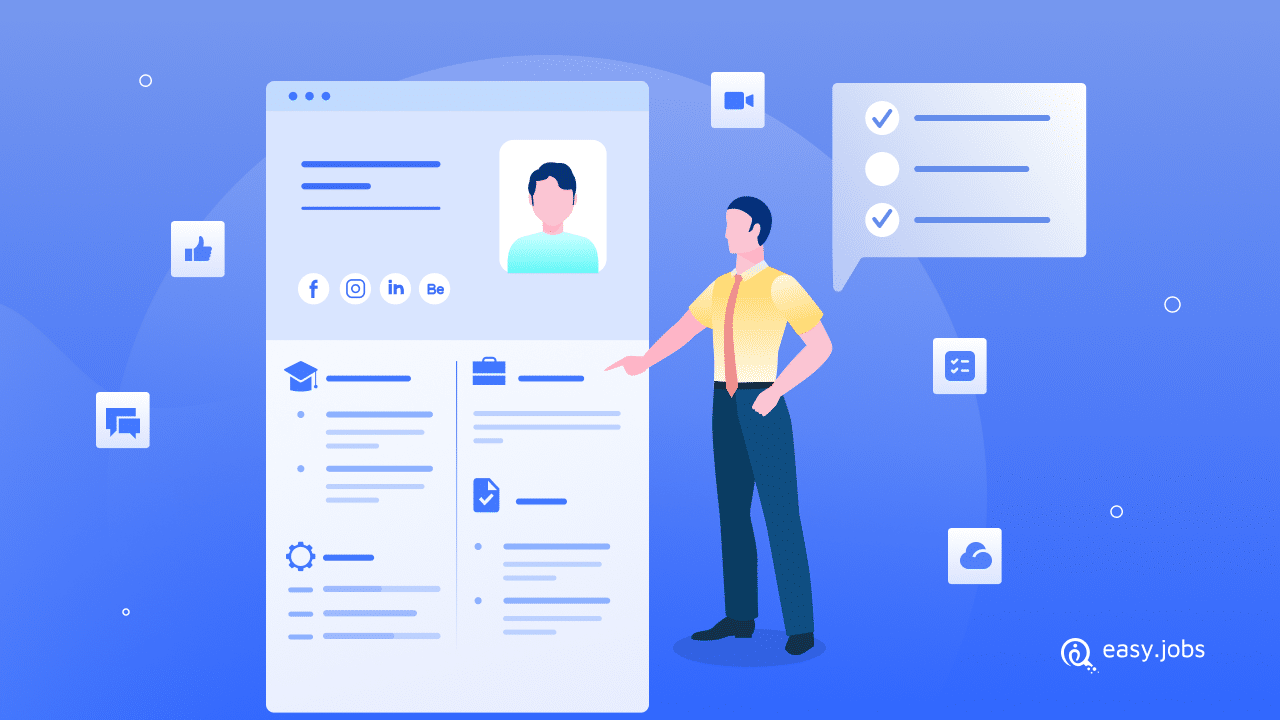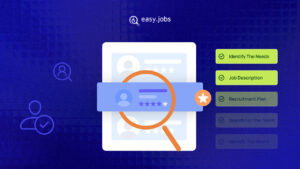The number of remote hires has increased significantly by as much as 140% over the previous 15 years, driven by the pandemic’s impact on global culture and technological advancements to deal with unforeseen circumstances. Remote employment is becoming advantageous to both firms and employees.
At the same time, when you are hiring remotely, candidate background checking is paramount. But why so? Today, we will learn the reasons and what steps we should follow to do a thorough background check of remote employees.

Why Is Conducting Candidate Background Checks Critical When Remote Hiring?
Employee background checking is critical when remote hiring to maintain security, protect the company’s reputation, reduce legal liability, improve hiring quality, and ensure a safe work environment. Not only that, background checks for prospective employees are essential when hiring remote workers for several reasons:
1. Ensures Security For Your Organization
Remote hiring involves providing access to sensitive company data and proprietary information to people working from a distance and who do not have a physical presence in your team. Background checking of these employees helps verify the identity, qualifications, and credentials of the potential employee, reducing the risk of hiring someone with a criminal record or malicious intent.
2. Protects Company Reputation
Hiring individuals with questionable backgrounds can harm a company’s reputation. Conducting background checks helps identify any previous misconduct, such as fraud or unethical behavior, and ensures that the hired employee aligns with the company’s values and ethics.
3. Reduces Legal Liability
Hiring an employee without conducting proper background checks can expose a company to legal liabilities if the employee engages in illegal activities, engages in harassment, or breaches data security. Background checking can help minimize these risks and ensure compliance with legal requirements.
4. Increases Hiring Quality
Remote hiring often involves limited or no face-to-face interactions. Background checking can provide additional information about candidates’ work history, qualifications, and references. This helps in verifying the authenticity of the candidate’s claims and making more informed hiring decisions.
5. Maintains A Safe Work Environment
Remote employees can work from anywhere, and it is vital to ensure a safe work environment for other employees, clients, and customers. Background checks can reveal any history of violence, harassment, or substance abuse that could potentially jeopardize the overall safety and well-being of the company and its stakeholders.
10 Types Of Background Checking You Should Conduct
It is important to note that the extent and types of background checks may vary depending on the industry, job role, and local laws governing the hiring process. Here, we have listed down 10 types of background checking that you should conduct.
1. Criminal Activities Background Check
This is the most common type of background check conducted to identify any criminal records or convictions for an individual. It helps ensure the safety and security of the workplace or community.
2. Past Employment History Verification
This background check verifies the accuracy of an individual’s employment history, including their job titles, dates of employment, responsibilities, and reasons for leaving previous positions.
3. Education Information Verification
This background check confirms the educational qualifications of an individual, such as their degrees, certifications, and attendance at specific institutions. It helps prevent resume fraud and ensures the individual has the required knowledge and skills for a particular role.
4. Mentioned Reference In Resume Check
This involves contacting the references provided by the candidate to verify their character, work ethic, and abilities. Reference checks are crucial in assessing an individual’s compatibility with the organization’s culture and professionalism.
5. Candidate Credit History Check
Some positions, especially those related to finance, may require a credit history check. It provides insight into an individual’s financial responsibility, such as their payment history, debts, and financial stability.
6. Driving Records Check
This background check is essential for positions that involve driving company vehicles or require a valid driver’s license. It reveals any driving violations, accidents, or license suspensions that might impact an individual’s ability to fulfill their job responsibilities.
7. Social Media Screening
With the increasing popularity of social media platforms, employers may perform social media background checks to assess an individual’s online presence and behavior. This helps evaluate their professional image, potential red flags, and alignment with company values.
8. Professional License Verification
For positions that require specific professional licenses or certifications, this background check confirms the validity and status of the individual’s license. It is crucial to ensure they are qualified to perform their role legally and ethically.
9. Drug And Alcohol Screening
This type of background check involves testing for the presence of drugs or alcohol in an individual’s system. It is often required for safety-sensitive roles or positions where substance abuse may pose a risk to others.
10. International Background Check
Conducted when hiring individuals with previous residency or employment outside the country, this background check helps verify their international experience, qualifications, and any potential criminal records in other jurisdictions.
Step-by-step guidelines To Do Candidate Background Checking For Remote Hiring
Before starting the background check need to keep in mind that transparency, fairness, and compliance with local laws are essential throughout the remote hiring process. Seek legal counsel if you have any doubts about the specific legal requirements in your jurisdiction. Conducting background checks for remote hiring is crucial to ensuring the safety and reliability of your new hires. Here’s a step-by-step guideline to help you through the process:
🔍 Understand Legal Requirements
Before you start, familiarize yourself with the local, state, and national laws regarding background checking. Different regions have varying regulations about what information you can collect and how to use it.
🔍 Obtain Consent From Candidates
Ensure you have written consent from the candidate to perform a background check. The candidate should fill out a release form authorizing the check. Otherwise, you may get caught up in shady activities. Protect the candidate’s personal information and ensure it is handled securely throughout the process.
🔍 Choose a Background Screening Tool
Research and select a reputable background screening company. They should comply with legal requirements and provide accurate, up-to-date information. In this step, you can get help from AI hiring tools for screening candidates.
🔍 Collect Information & Verify Identity
Request necessary information from the candidate, such as their full name, date of birth, and Social Security Number or equivalent, if applicable. Confirm the candidate’s identity to prevent fraud. Compare the provided information with official documents like passports or driver’s licenses.
🔍 Run Different Types Of Background Checks
It’s essential to do background checks to determine whether the applicant has criminal records, whether all employment certificates are accurate, whether education certificates are verified, and so on. In this step, all you have to do is create a checklist following the above-mentioned types of background checking and conduct it. You can customize the list depending on your organization, type, size, brand value, etc.
🔍 Review the Results
Carefully examine the information gathered from the background checks. Pay attention to any discrepancies or concerns. If the background check results influence your hiring decision negatively, you must follow adverse action procedures. Notify the candidate in writing, provide them with a copy of the report, and give them an opportunity to dispute inaccuracies.
🔍 Document The Process
It’s good practice to keep a record of every step you follow for candidate background checking. Try to record the entire background check process, including consent forms, correspondence, and results. This documentation is important for legal compliance. As well as will guide you in future background checking,
🔍 Make The Hiring Decision
After considering the background check results, make an informed decision about whether to proceed with the candidate’s hiring. Communicate your hiring decision to the candidate and provide them with any necessary information about their new role. Once the candidate accepts the offer, proceed with remote onboarding and orientation to ensure a smooth transition into the organization.
🔍 Regularly Update Policies and Procedures
The candidate background checking process doesn’t end here. There are more. You have to stay informed about changes in background check laws and regulations and update your hiring policies and procedures accordingly.
Smoothen You Remote Hiring Process 🚀
Hopefully, the above-mentioned steps and guidelines will help you conduct successful background checks on your chosen candidates. Obviously, this will help you to upscale your organization’s growth. If you want to keep getting these kings of remote hiring tips and tricks, then subscribe to our blog. Also, our Facebook community is always there for your help.







